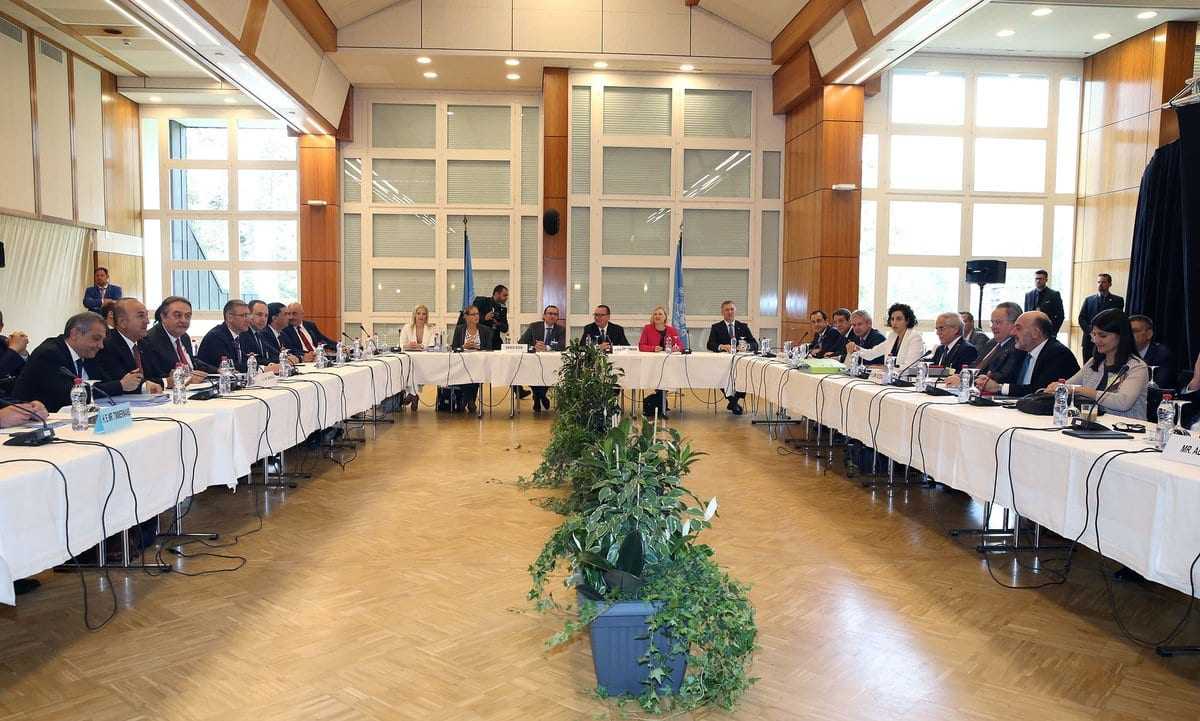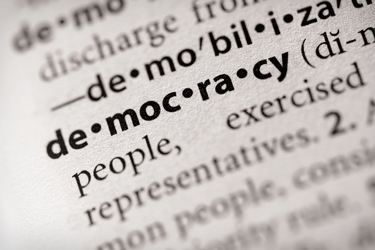By Ahval
The United Kingdom, one of Cyprus’s three international guarantors, is re-entering the stage to find a solution to the long-running conflict that has seen the island partition since 1974.
UK Foreign Minister Dominic Raab made his first official trip to Cyprus earlier this month, ahead of a five-party conference to be hosted by the United Nations in March.
Raab’s visit left Cypriots with plenty to chew on over the coming weeks.
This was not so much the statements he made in front of the cameras, but rather the new British plan he is reported to have proposed to both sides behind closed doors.
Writing in the Cypriot Politis newspaper, columnist Dionysis Dionysiou said Raab presented Greek and Turkish Cypriot leaders with a road-map for the resumption of peace talks that have been stalled since 2017.
“(The British) are not offering anything new but this is a bridging plan that seeks to satisfy the positions of both sides on the level of symbolism more than on the substance,” Dionysiou said.
According to Dionysiou, the basic principles of the British approach are as the following:
- The two existing “sovereign states” of the Greek Cypriot and Turkish Cypriot communities will establish the Federal Republic of Cyprus, as they did in 1960. The new state will not need to reapply for U.N. or the European Union membership.
The Nicosia Treaty establishing the Republic of Cyprus in 1960 considered the island to be made up of two separate “communities”. However, following the Turkish military intervention of 1974, and the creation of the Turkish Republic of Northern Cyprus (TRNC), the U.N. Annan Plan, which was put to a referendum on both sides of the divided island in April 2004, referred to the founding parts of the “United Cyprus Republic” as “constituent states”.
- The new federal government will have the authority in areas such as foreign policy, economy, security, and citizenship. A Council of Ministers will be created, chaired by two co-chairs of equal status, and made up of six Greek Cypriot and three Turkish Cypriot representatives. Regarding appointments to the council, the British plan proposes to study the systems used in Belgium and Northern Ireland.
In Belgium, each community, the Walloons and the Flemings, nominate their own ministers. In Northern Ireland, the cabinet is appointed on the basis of the political party’s share in the parliament.
- Legislative power at the federal level will consist of a single body of 36 people, made up of 24 Greek Cypriot and 12 Turkish Cypriot representatives, with veto rights providing insurance for the Turkish Cypriots.
- The two existing “community states” will have the right to conclude their own agreements. They will be able to join international bodies and be represented at international sporting events in the same way that the constituent parts of the UK: England, Scotland, Wales, and Northern Ireland have their own teams in the FIFA World Cup.
- The new federal government will need the consent of the community states on international and EU matters. If there is no unanimity, then Cyprus will abstain in line with a model used by Belgium.
- The country will be gradually demilitarized. A small number of Greek and Turkish soldiers will remain initially, but all foreign troops will withdraw within ten years. Turkey will renounce the right to unilaterally intervene in the island.
The 1960 Nicosia Treaty forbids any activity directly or indirectly promoting of the division of the island and reserves the three guarantor powers the right to take action to re-establish the status quo. In 1974, Turkey used this right to intervene on the island to counter a Greek-backed coup and has retained a military presence ever since.
- The territory of the two community states will be in line with the charter agreed during talks between Greek Cypriot leader Nikos Anastasiadis and the former Turkish Cypriot leader Mustafa Akıncı that collapsed in 2017. The Turkish Cypriot state’s territory will decrease to between 28.2 percent and 29.2 percent of the island with the return of the disputed towns of Varosha and Morphou to the Greek Cypriot administration.
Following the 1974 Turkish military intervention, the peace line dividing the island in two left 36.2 percent of territory under Turkish control.
- The return of disputed property, one of the most complex issues holding back reunification, will be managed by a three-part formula agreed in previous negotiations: return, compensation and exchange. Historical and emotional connection to property would be recognized, but the views of current owners – who have often lived there for more than 40 years – would also be acknowledged.
Dionysiou said the Greek Cypriot side was satisfied by Raab’s reunification plan but concerned by the “sovereign equality”, recently floated by their Turkish Cypriot counterparts.
Following the election of Ersin Tatar in October, the Turkish-Cypriot administration’s attitude has shift sharply towards the idea of a“two-state solution” over federal reunification. Tatar has repeatedly indicated his support for the establishment of two independent and internationally recognized states in Cyprus, despite the U.N. Security Council resolutions to the contrary.
During the election campaign, the Turkish government backed Tatar over his main rival Mustafa Akıncı, a former president and avowed supporter of the federal reunification process.
And Turkish President Recep Tayyip Erdoğan recently reiterated his government’s approach, saying a two-state agreement would be the only solution in Cyprus.
“Whether you accept it or not, there can no longer be such a thing as a federation,” he said.
According to Dionysiou, the UK is trying to make concessions to the increasingly assertive Turkish Cypriot position on sovereign equality through the concept of “community states”.
However, Dionysiou added that the idea of “sovereign equality” is not something new in regards to the Cyprus issue.
The joint declaration by Turkish Cypriot leader Derviş Eroğlu and the Greek Cypriot leader Nikos Anastasiades on Feb.11, 2014, affirmed that “neither side can claim power or jurisdiction over the other,” and “there is no hierarchy between the federal government and the two constituent federal states,” Dionysiou said.
Dionysiou also referred to the visits of U.N. Special Envoy Jane Hall Lute to the island in December and January, when she conveyed a message for each side from U.N. Secretary General António Guterres ahead of the informal five-party conference.
For the Turkish Cypriots, the message was that “(international) recognition of a Turkish Cypriot state in Cyprus is out of place and time, and with such a position on the table, the Secretary General does not intend to convene the pentamer,” Dionysiou said.
As for the Greek Cypriots, the message from Guterres was similar, Dionysiou said. If they refuse to accept the political equality of the Turkish Cypriots as set out in the Crans Montana conference in 2017, then the five-party meeting would be meaningless.





